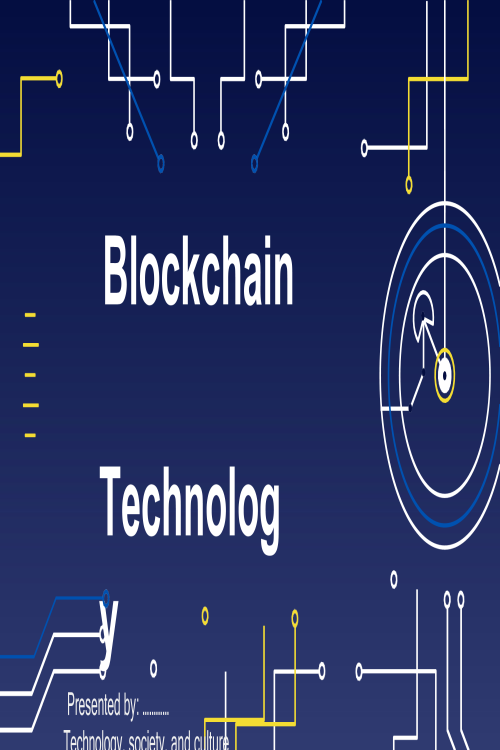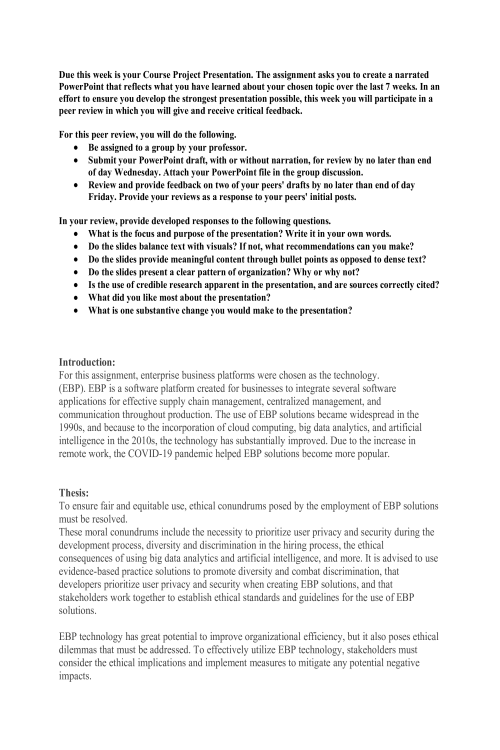LAS 432 Week 8 Course Project Final; Climate Control
Climate Control Written byLAS 432 / Technology, Society, and Culture DeVry University Professor Tenisha Richardson Date Table of Contents Abstract2Introduction4History…5Environmental Impacts during the Last6 Environment6Future Climate Changes That could Occur…8Technology…8Artificial Intelligence9Implications for the Environment11Effects on Humans12 Global climate effects on the food chain…12Economic Thoughts and Concerns13Costs of using climate-altering methods14Global Climate Change Positive and Negative14 Conclusion…15References17Abstract Climate change is one of the most significant worries of the recent day. Nevertheless, the worry of those firmly following the discussion, is that it has more of a panic than solid attempts to fix climate change. The circumstance introduces an emergency where the vulnerabilities of anticipated worldwide changing situations joined with the hazardous nature of those in charge, will hinder solid activity and support the idea of watching out for the ecological approach. However, the total idea of global warming may not allow us the advantage of sitting back and watching. So, there is a requirement for the activity, despite the vulnerabilities of anticipated changes: yet activity requires solid settings to encourage expectant measures by the leaders. To determine the issue, one should search for sections of vulnerabilities that describe the entire issue. This paper argues that such segments can be anticipated by changing the current skewed points of view on the issue. Based on work on supportable agriculture in delicate regions of the world, this paper recognizes current issues and their conceivable arrangements. The present issues and their unhelpful measures are connected to the effects of future environmental change in the provincial setting. As a result of such linkages, measures to tackle current issues will and can encourage adjustment to future climatic effects, without solely deciding on the unknown. Even though not a substitute for direct activity against an Earth-wide temperature boost, this methodology can help concerning the issue highlighted by combined sorts such an example, deforestation, and desertification. Its solid point is that it incorporates the worries of current issues with those of things to come effects of an Earth-wide climate temperature boost and supporters double the reason strategies to treat the two without being unduly discouraged by the vulnerabilities of global change. Introduction Climate change is a topic that is brought up in many different genres of conversations. Whether it be brought up and discussed in politics, school, family, or friends, some people still limit using those words when in casual conversation. Some of those same people are the people who still deny that climate change is happening. Climate change affects everyone. The prime purpose of the study is to identify how the modern information technology systems can help improve the environment and to help describe the impacts of environmental conditions from the last decade, it will describe how future climate changes will be impacted, provide proof that global climate change is real and here to stay if we don't find solutions for it. Climate change is a topic that is becoming very controversial all across the United States. Climate change is a critical change in the measures of climate that lasts for an extended period. [Mic14] It covers major changes in the temperature, wind patterns, precipitation, and other effects that come about ten or more years later. Climate change affects the way people keep order in their lives. [Dah19] It has a high power over all of Mother Nature and the environment. We are all aware of these environmental conditions which are brought about as a result of the changing patterns of the climate. For instance, it is predicted that there will be a growing increase in the environmental refugees as well as the improved pressure on the sources of water and other vulnerable ecosystems. [Pau10] Therefore, there is a need to address these challenges which can be caused by the unpredictable climatic change through the adoption of the modern information communication technologies which can be essential in the monitoring of the environmental and climatic changes, 6 disseminate the relevant data and also prevent the climatic conditions which can adversely affect the ecosystems. History Scientists have claimed that there will be a projected increase in the average temperature of 1.1- 6.4 degrees Celsius in the 21st Century. [Mic14] [Gou]) [Gou06] The outcome will be unevenly distributed with the low-lying coastal regions at the risk of improving sea levels, and Sub-Saharan Africa is also at a major risk of desertification. We are all aware of these environmental conditions which are brought about as a result of the changing patterns of the climate. For instance, it is predicted that there will be a growing increase in the environmental refugees as well as the improved pressure on the sources of water and other vulnerable ecosystems. Researchers spent the better part of the 1970s discussing various contradictory analyses and predictions about the climate change phenomenon . One contradictory media report was shared in 1975 claiming that a fall in global temperature may lead to a significant decline in food production. (Peterson, Connolley & Fleck, 1326). However, beyond media theories, a number of the scientific study predicted global warming would take place (Peterson, Connolley & Fleck, 1326). In 1975, the US National Academy of Sciences shared a report concluding although there was a good quantitative understanding of climate, it was impossible to predict climate (Prewitt, Schwandt, Straf, 14). This view contradicts the current position of the US National Academy of Sciences which stems from the observation that there is compelling evidence of significant global warming and that a significant percentage of this warming is attributed to human activities. Environmental Impacts during the Last Decade Climate Control The actual environment was indeed the most significant environmental issue of the last decade. Other main contributors to environmental impacts in the last decade were climate change and global warming, increases in renewable energy, overpopulation, global water problems, and a continued threat to endangered species. In the past decade, climate change and human-generated global warming have had the most public and media concern. According to the National Research Council (2010), “the world’s climate has made diverse types of severe changes during the last ten years” (page 17). Also, global warming has been the cause of rivers drying up in Australia and polar ice caps melting in Antarctica. The world’s renewable energy uses significantly grew in the past ten years, even as products (such as Big Coal or Big Oil) were being introduced to satisfy most of our energy needs on Earth. Global population growth has caused major environmental impacts. According to Wagner (2009), “overpopulation is the cause of lost rainforests, a loss of wildlife species and plants, and drastic increases in emissions from greenhouse gases” (Para. 7). Because of population increases, there have also been global water problems involving a low supply of freshwater. Human-caused impacts from global warming, loss of habitat, species exploitation, and loss of habitats are causing endangered species to become extinct at alarming rates. Environment Climate change or climate control has a profound impact on how the environment works for us today. It affects all of us as individuals as well. The research could prolong and become a successful resource, especially for the water or irrigation systems. Precipitation and the air temperature of the surface are useful and have predictions that come from climate change or in other words global warming. For example, a regulated lake system is a case study found to research interconnected lakes and how they join to help or participate within the climate change 8 Climate Control Week 5 Team F of our environment. “The resulting modified t
Related Products
Related Products
LAS 432 Week 7 Discussion; The Big Picture - Making Strategic Recommendations
Contributor: Adrian Pasdar
$10
LAS 432 Week 2 Course Project Assignment; Ethical SWOT Analysis of Your Topic
Contributor: Adrian Pasdar
$0
LAS 432 Week 3 Course Project Assignment; Historical Context and Ethical Questions
Contributor: Adrian Pasdar
$0



















